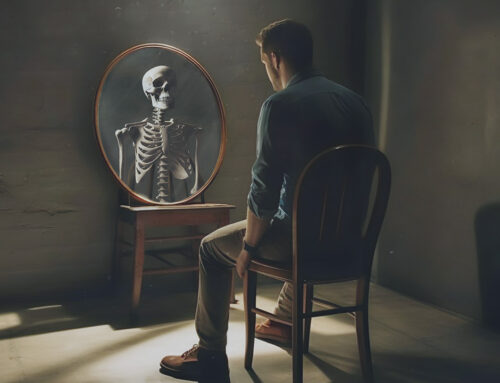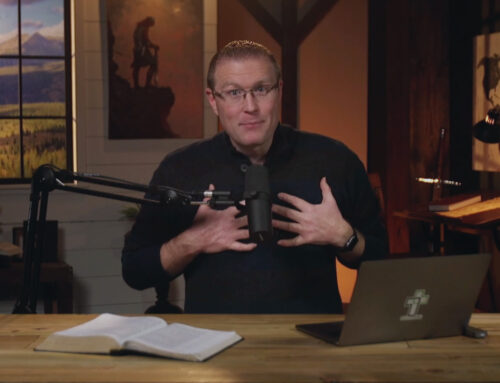Our country is in a pandemic panic.
While the Coronavirus has boosted the sales of toilet paper, cleaning supplies, bottled water, and hand sanitizer … it has also boosted the fear, trepidation, and worry of countless millions.
I certainly don’t want to downplay the seriousness of the situation but I do want us as Christians to refresh our focus.
We are told, as Christians, not to fear – and that includes the Coronavirus.
A Look to the Past
This is not the first time that Christians have had to deal with pandemics, plagues, or death knocking at their door.
Throughout Christian history, it has often been reported that it was the Christians who would run into the fray rather than run from it. Here are a couple examples:
- From 165 to 180 AD the Roman Empire struggled through the Antonine Plague (also known as the Plague of Galen), which had a mortality rate of 25% (in the city of Rome) and reportedly killed an estimated 5 million people worldwide.
- The Plague of Cyprian (believed to be measles or smallpox) spread throughout the Roman Empire from 249 to 262 AD and was reported to kill 5,000 people a day just in the city of Rome. Historian Kyle Harper states that this plague nearly brought about the end of the Roman Empire.
- In the years between 1347 and 1351, the Black Death (the Bubonic Plague), considered one of the deadliest plagues in history, is estimated to have killed 30-60% of Europe’s population, resulting in the deaths of 75-200 million people … taking Europe 200 years to recover to its original population.
In each of these pandemics, the testimony of Christians dumbfounded their unbelieving neighbors.
In the Plague of Cyprian, it is said that “The threat of imminent death from the plague and the unwavering conviction among many of the Christian clergy in the face of it won more converts to the faith.”*
In nearly every major outbreak, plague, pandemic, or crisis, the unbeliever’s way of dealing with the situation is to self-protect, hide, and sacrifice others to save oneself.
But the Christians’ response is to be entirely different.
Rather than running from the “fire” we are to run into it.
A Crisis Becomes a Christian’s “Classroom”
Speaking about a plague in Alexandria, Dionysius wrote that the plague served as a “schooling and testing” for the Christians. He said that Christians would head into the plague and serve the sick without thought to themselves until many of them caught the disease and died. He writes:
“Most of our brother-Christians showed unbounded love and loyalty, never sparing themselves and thinking only of one another. Heedless of the danger, they took charge of the sick, attending to their every need and ministering to them in Christ, and with them departed this life serenely happy; for they were infected by others with the disease, drawing on themselves the sickness of their neighbours and cheerfully accepting their pains.” **
As Moses Y. Lee writes about the Christian response to pandemics in history past:
“The impact of this service was twofold: (1) Christian sacrifice for their fellow believers stunned the unbelieving world as they witnessed communal love like they’d never seen (John 13:35), and (2) Christian sacrifice for non-Christians resulted in the early church experiencing exponential growth as non-Christian survivors, who benefited from the care of their Christian neighbors, converted to the faith en masse.” ***
The Coronavirus is Our Classroom
Like the Christians of old, wouldn’t it be fascinating if the Christian response today toward the Coronavirus demonstrated to the world that we know Who still sits upon the throne (see Revelation 5:13)?
What if rather than panic, fret, worry, or anxiety, we exhibited peace, joy, trust, and dependence?
What if we as believers would be willing to walk into the “fire,” and begin to help those in need, to bless those who hurt, and to be immovable amidst the crisis?
What if we indeed behaved as … Christians?
I love how Moses Y. Lee closed his article with a quote from Dionysius dealing with the epidemic of his day. Dionysius declared: “Other people would not think this a time for festival … [But] far from being a time of distress, it is a time of unimaginable joy.”
As Lee concludes, “To be clear, Dionysius was not celebrating the death and suffering that accompany epidemics. Rather, he was rejoicing in the opportunity such circumstances present for testing our faith––to go out of our way to love and serve our neighbors, spreading gospel hope, in both word and deed, in times of great fear.” ***
Let us too run into the fire of this crisis, stand strong in the midst of suffering, and be immovable in the light of the One Who continues to hold all things in the palm of His hand.
For as God spoke through Isaiah: “Fear not, for I am with you; be not dismayed, for I am your God; I will strengthen you, I will help you, I will uphold you with my righteous right hand” (Isaiah 41:10).
Disclosure of Material Connection: Some of the links in the post above are “affiliate links.” This means if you click on the link and purchase the item, deeperChristian will receive an affiliate commission (with no additional cost to you). It is a great way to support the work and ministry of deeperChristian. Regardless, we only recommend products or services we use personally and believe will add value to our readers. We are disclosing this in accordance with the Federal Trade Commission’s 16 CFR, Part 255: “Guides Concerning the Use of Endorsements and Testimonials in Advertising.”











